and the distribution of digital products.
Top 30+ AI Robotics Projects: Step Into the Future
In today’s world, AI has become an integral part of our daily lives. From mid-journey beautiful and aesthetically pleasing image creation to conversing with ChatGPT, AI significantly shapes our experiences and interactions. However, most AI tools come in software applications running silently in the background, but the potential of AI is not just this. Now, there is a demand for aspiring engineers, and engaging with AI robotics projects is a gateway to exploring the intricate relationship between machine learning and mechanical design. In this article, we delve into the top 50+ AI robotics projects, perfect for engineering students seeking to harness the power of AI to bring robots to life. From autonomous vehicles to intelligent home assistants, these projects showcase the endless possibilities AI robotics offers for the next generation of innovators.
Top 30 AI Robotics Projects 1. Autonomous Car
Develop an autonomous self-driving car by integrating cameras, LIDAR, radar, and other sensors to enable traffic sign recognition, pedestrian and object detection, automatic parking, lane keeping, and route optimization between destinations. Train deep neural networks on labeled image datasets for various object detection tasks. Incorporate mapping capabilities and implement algorithms like A* search and Dijkstra’s algorithm for path planning.
Also, read – Top 5 AI Video Generators: The future of Marketing
2. Bipedal Robot
Engineer two-legged robots capable of balanced walking, running, and navigating environments, including staircases. Design key aspects like gait patterns, inverse kinematics of legs, zero moment point stability criteria, field of view stability metrics, etc. Develop gait generators to plan optimal joint motion trajectories that ensure stability. Enable bipedal locomotion using algorithms like the inverted pendulum approach for balance, optimal ZMP trajectories, and footstep replanning. Potential applications include humanoid robots, bipedal carriers, entertainers, etc.
3. Robotic Arm
Engineer an articulated robotic arm capable of precise manipulation and pick-and-place tasks by integrating servo motors for joint actuation, robotic grippers as end-effectors, and implementing inverse kinematics algorithms for trajectory planning. Incorporate machine vision modules to detect and localize objects visually. Develop position control algorithms like PID control for precise positioning of arm joints. Useful for automation applications in warehouses, laboratories, medicine, and more.
Also, read – Best GPT-4 Plugins: Use ChatGPT like a pro
4. Gesture Controlled Robot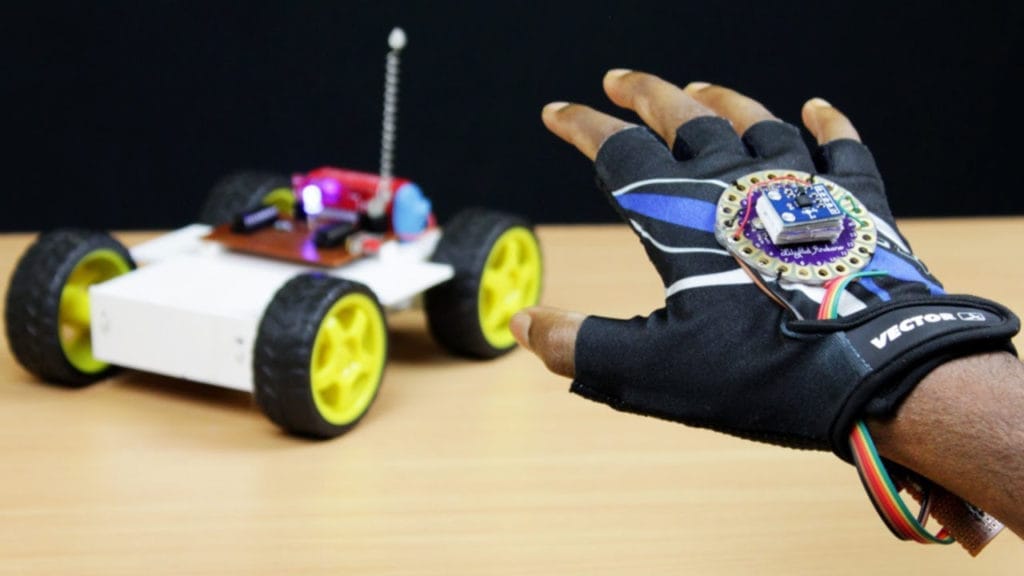
Develop hand gesture recognition capabilities to control robots using computer vision algorithms. Extract hand features like palms, fingertips, and joints from camera images and video feeds. Use techniques like convolutional neural networks (CNN) and SVM to classify extracted features into defined control gestures accurately. Interface the classified gesture with the robot’s navigation controls or manipulator controllers to execute movements like turning, moving forward/backward, grabbing, etc., based on detected gestures. Potential applications in assistive technology for people with disabilities and touchless control in public spaces like smart homes, offices, etc.
5. Drone Fleet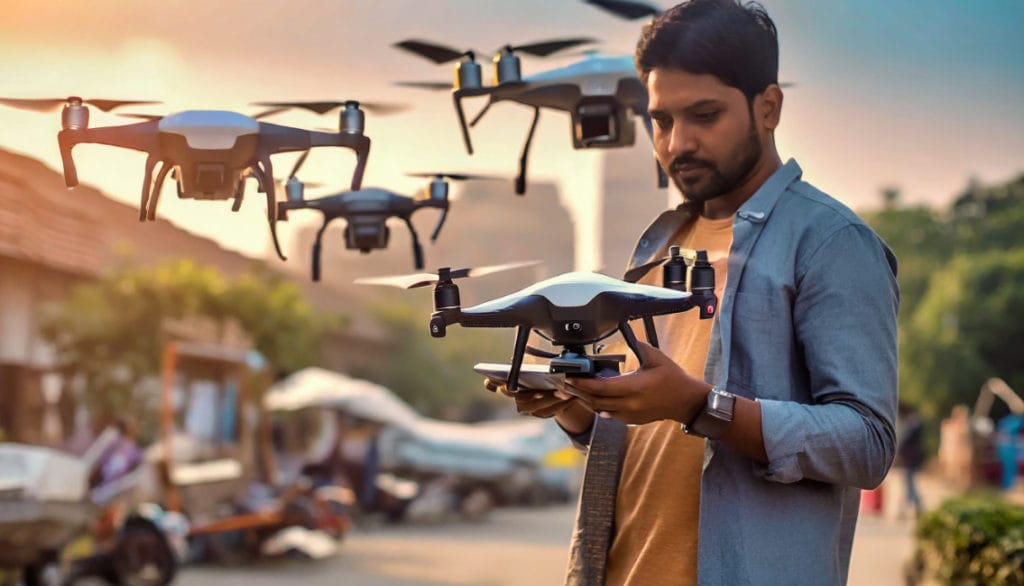
Program a fleet of drones with autonomous swarm intelligence capabilities like flocking, formation change, coordinated maneuvers, etc. Implement algorithms like Reynolds rules, ant colony optimization, and artificial potential fields to distribute tasks and enable communication and collision avoidance between drones in the swarm. Incorporate sensors and develop protocols for relative and absolute localization to enable collaboration between drones. Applications include coordinated package delivery, dynamic aerial light shows, traffic surveillance, and more.
6. Robotic Floor Scrubber
Robotic Floor Scrubbers are designed for large-scale floor cleaning in public places like malls and airports. These autonomous machines perform a range of cleaning tasks, including vacuuming, wet mopping, scrubbing, and drying. They feature mechanisms for refilling water and disposing of waste, maintaining cleanliness and hygiene.
Also, read – Best GPT-4 Plugins: Use ChatGPT like a pro
7. Autonomous Warehouse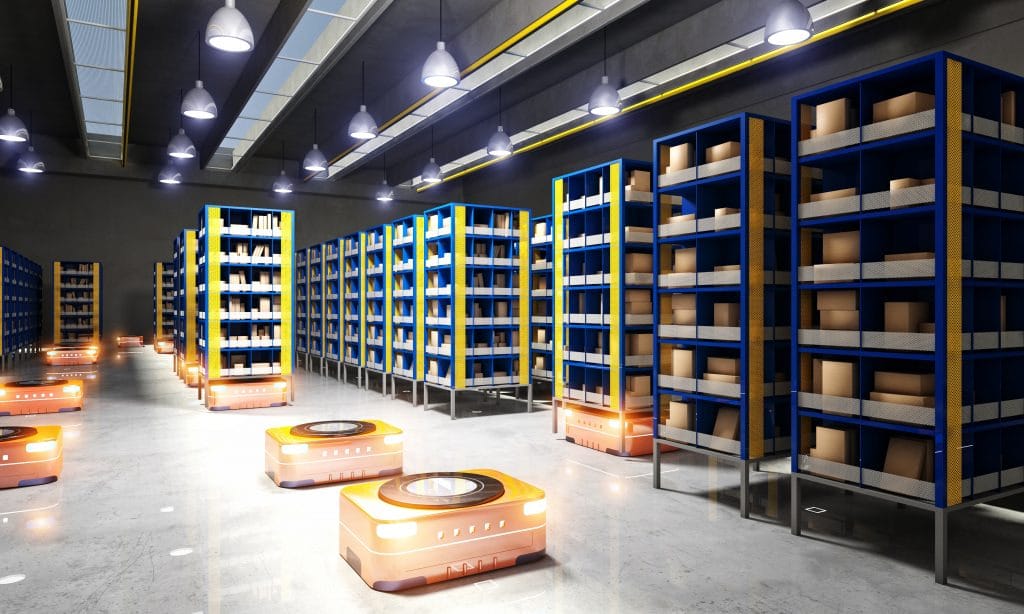
Engineer robots optimized for automating inventory-related tasks in warehouses like transporting, sorting, picking, and storing goods. Equip them with sensors like LIDAR for 3D mapping and cameras for vision. Implement simultaneous localization and mapping (SLAM) techniques like occupancy grid mapping to locate their position within warehouse layouts. Develop optimal path-planning algorithms to enable efficient navigation. Incorporate robotic arms, grippers, and object detection modules to facilitate item manipulation.
8. Robotic Pet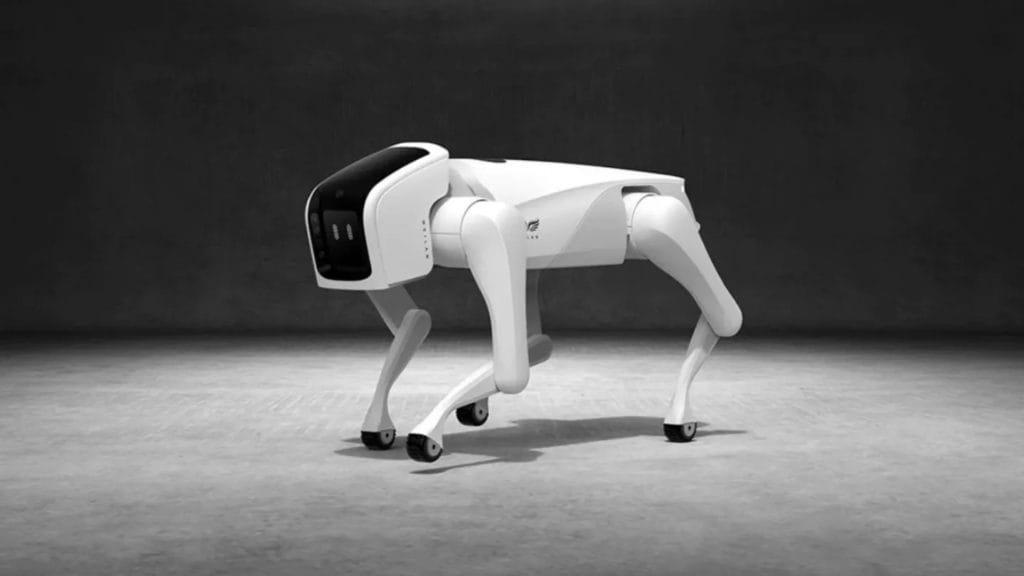
Develop lifelike robotic pets by integrating servo motors for mobility, touch and sound sensors for tactile interaction, and microphone and speaker for audio interaction. Implement AI algorithms like reinforcement learning neural networks to train the robot to exhibit lifelike behaviors based on external stimuli like patting, sounds, etc., as well as internal conditions. Enable emotional expressions and adaptive behaviors to provide animal companionship, social assistance, etc.
9. Object Sorting Robot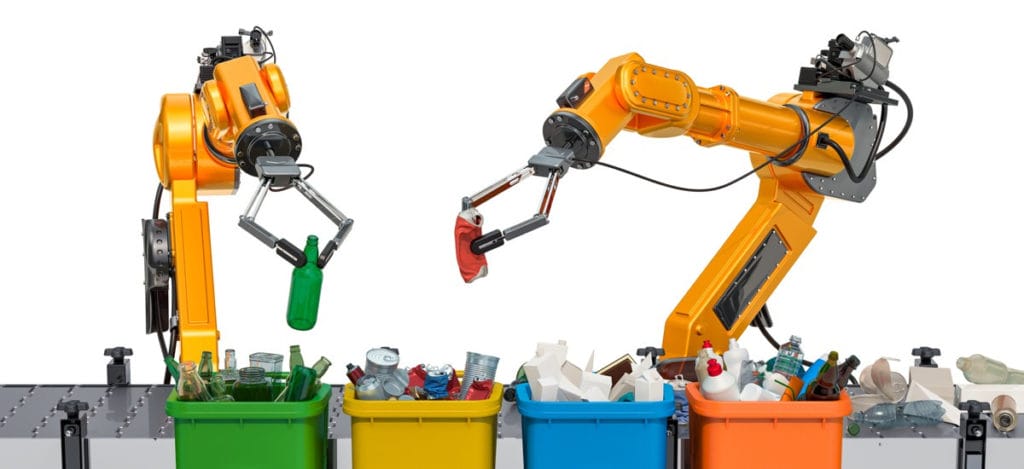
Build an automated system for sorting different objects like packages in a warehouse using computer vision and robotic manipulation. Detect and identify objects on a conveyor belt using algorithms like YOLO. As objects pass by, use a robotic arm equipped with a vacuum gripper end-effector to selectively pick and place them into appropriate bins designated for each object type. This improves warehouse automation and inventory sorting efficiency and reduces manual effort.
Also, read – 10 Ways to Earn Money Using AI
10. Microrobotic Swarms
Engineer coordinated swarms of microscopic nanobots for applications like targeted drug delivery, nanosurgery, etc. Fabricate nanoscale robots using state-of-the-art nanofabrication techniques. Develop specialized mechanisms like chemical gradients and magnetic forces for mobility and control at the microscopic level. Enable them to communicate using optical signaling and program autonomous collaboration behaviors to achieve swarm intelligence using algorithms like particle swarm optimization.
11. Exoskeleton
Create lightweight wearable exoskeletons capable of enhancing human strength, speed, endurance, and protection. Build mechanical frames with high strength-to-weight ratio materials like carbon fiber. Integrate electro-mechanical actuators like servo motors at all major joints to assist and augment the wearer’s body motions. Add sensors to monitor nerve signals from the wearer and implement neural networks-based control algorithms to interpret such biofeedback and control the exoskeleton suit in synchronized motion with the wearer. Applications include rehabilitation, worker safeguarding, and effort reduction in load handling.
12. Disaster Relief Robot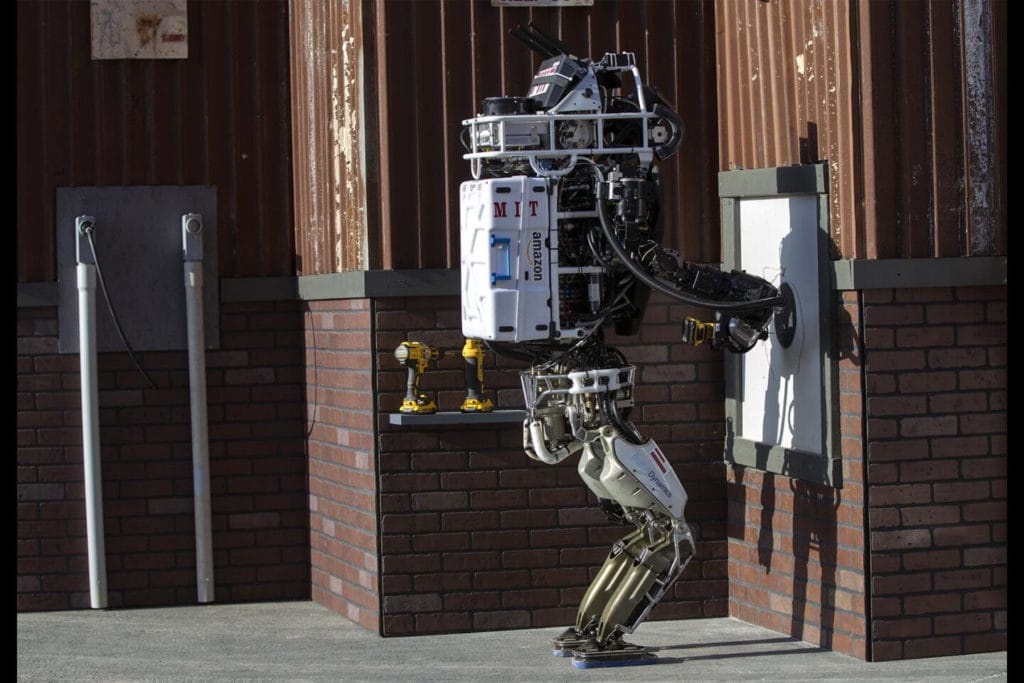
Engineer mobile robots specialized in search and rescue operations for environments like earthquake-hit sites, flooded areas, etc. Build robust, weatherproof, and hazardous terrain-capable platforms equipped with sensors like LIDAR, stereo cameras, and microphone arrays. Develop computer vision and SLAM algorithms to map disaster areas, identify trapped victims using object detection thermal imaging, and integrate two-way communication systems for hostage situations. Make them semi-autonomous by integrating robotic arms and human detection modules for assessing dangers before human first responders move in.
Also, read – Claude AI – Better than GPT-4?
13. Fruit Harvesting Robot
Develop a robot capable of autonomous or assisted fruit picking in orchards and greenhouses. Design custom end-effector grippers optimized to gently hold ripe produce of various shapes, sizes, and fragility. Incorporate computer vision algorithms to detect ripeness using visual indicators like size, color, shape and specialty cameras like hyperspectral imaging. Program compliant motion control to detach fruits without bruising and optimize harvesting routes to navigate rows of plants.
14. Prosthetic Arm
Engineer smarter robotic prosthetic arms capable of more intuitive and natural control by patients. Record and analyze bioelectric signals from arm nerves and muscles using pattern recognition techniques and machine learning classifier models to identify intended hand gestures and motions. Develop algorithms to translate classified nerve signal patterns into corresponding prosthetic control commands. This enables thoughts to control the prosthetic, providing an enhanced quality of life over traditional prostheses.
15. Firefighting Robot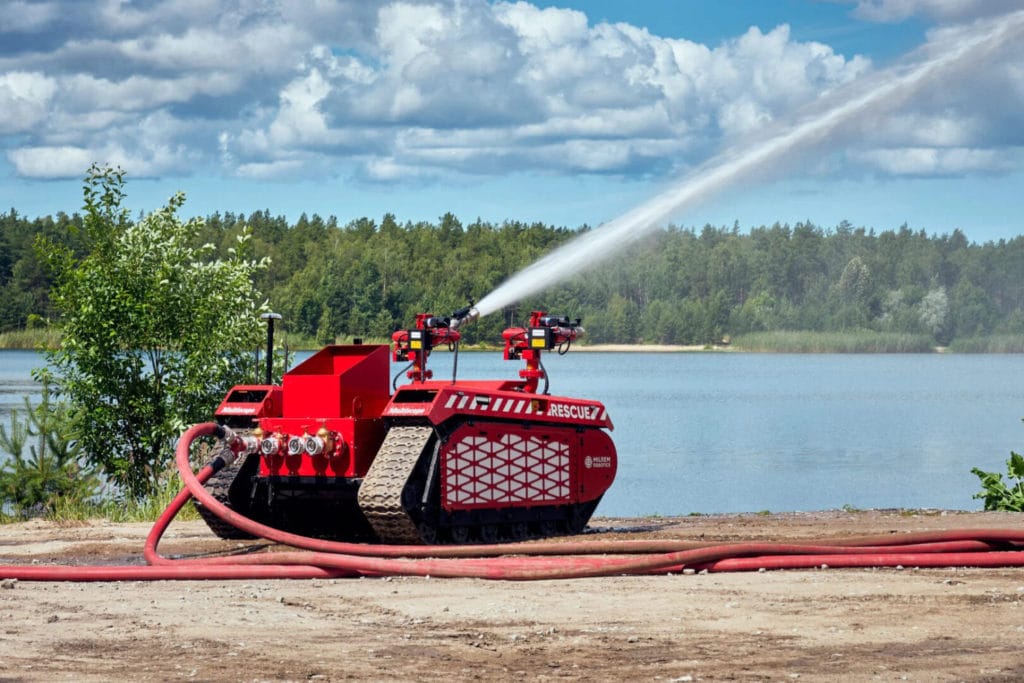
Firefighting Robots are designed to enter hazardous, burning areas within buildings and homes. These robots have infrared (IR) cameras to identify fire sources. Using sensors and mapping algorithms, they navigate through smoke and flames, precisely targeting and extinguishing fires, thereby improving fire safety.
Also, read – Best AI Tools for Students
16. Self-Driving Luggage
Self-driving luggage represents a remarkable innovation in travel convenience. These autonomous suitcases can reliably follow their owners through crowded airports. Utilizing computer vision techniques such as visual object tracking, these intelligent luggage systems offer a hands-free solution for travelers, reducing the hassle of carrying heavy bags.
17. Pizza Assembly Robot
Pizza Assembly Robots are streamlining commercial pizza preparation. These specialized robots are proficient in tasks like accurately spreading sauce, adding cheese, and transferring pizza pies. Equipped with robotic arms, conveyors, and precise control software, they ensure consistent and efficient pizza production.
18. Fruit Quality Inspector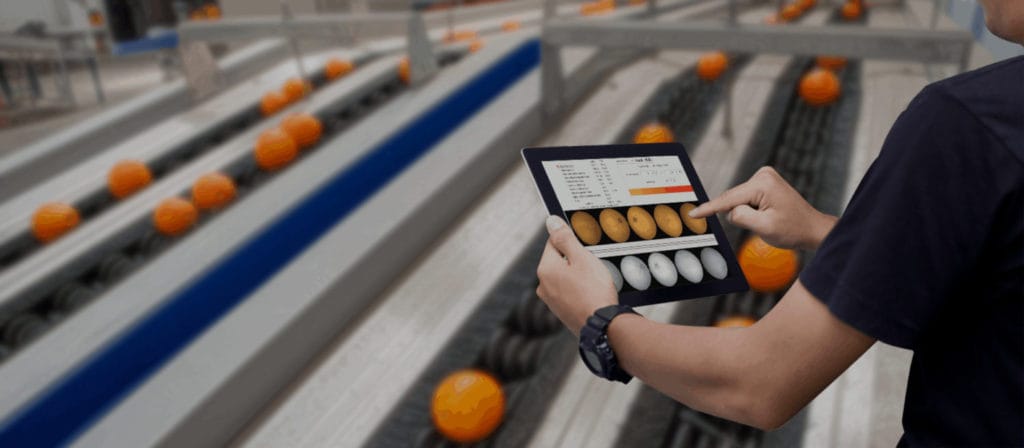
Fruit Quality Inspectors are robotic systems equipped with sensors, including hyperspectral imaging, for assessing fruit quality non-destructively. These robots detect ripeness defects and predict quality attributes such as sweetness and shelf-life using AI and machine learning. They aid in quality control and reduce food wastage.
Also, read – Best AI Tools for Sales
19. Farming Robots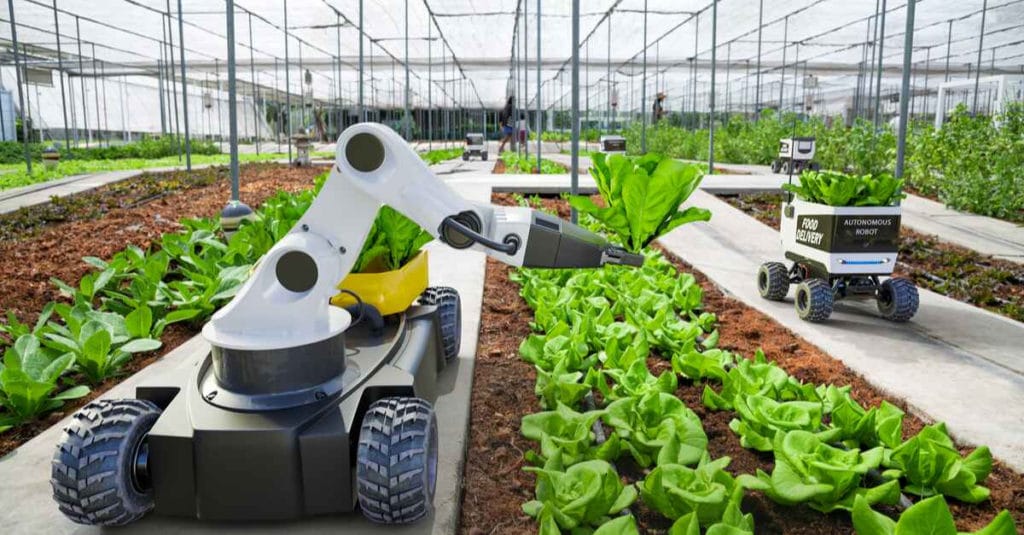
Develop AI-based agricultural robots customized to automate essential farming tasks and assist human farmers. Duties may involve autonomous navigation in orchards and fields for surveillance using SLAM, fruit/vegetable picking using vision and gripper systems, weed and pest removal using robotic arms, environmental monitoring using multispectral sensors, livestock health tracking using computer vision, etc. Advanced analytics software can compile and crunch captured data to provide actionable insights.
20. Marine Life Tracker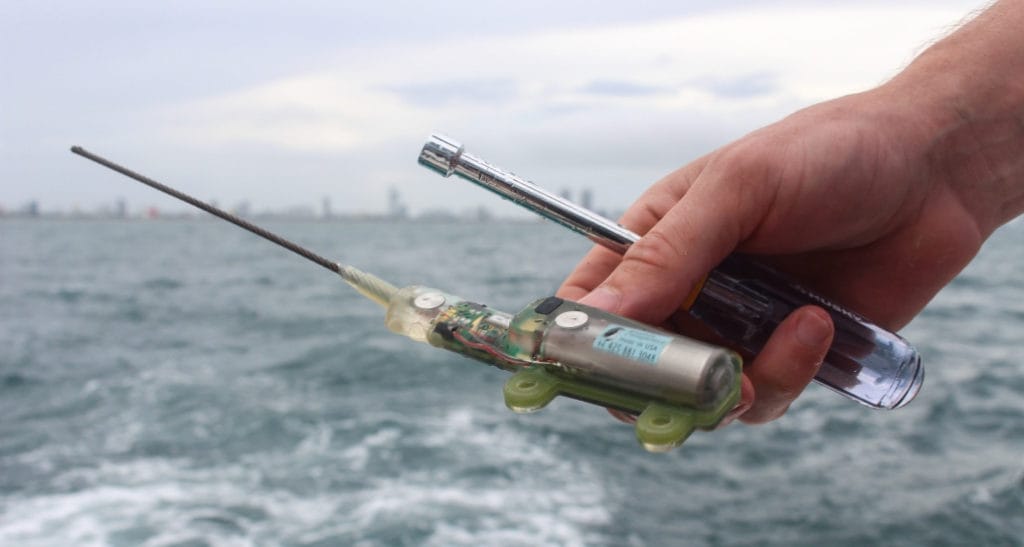
Develop underwater drones capable of autonomously following and monitoring marine animals in the wild to study migration patterns, group behaviors, and conservation needs. Equip drones with fish detection and recognition algorithms using sonar and optical imagery data. Implement persistent autonomous tracking and data collection capabilities using techniques like extended Kalman filter prediction and path planning optimization. Integrate environmental sensors to relate observations with temperature, currents, etc.
21. Furniture Assembly Bot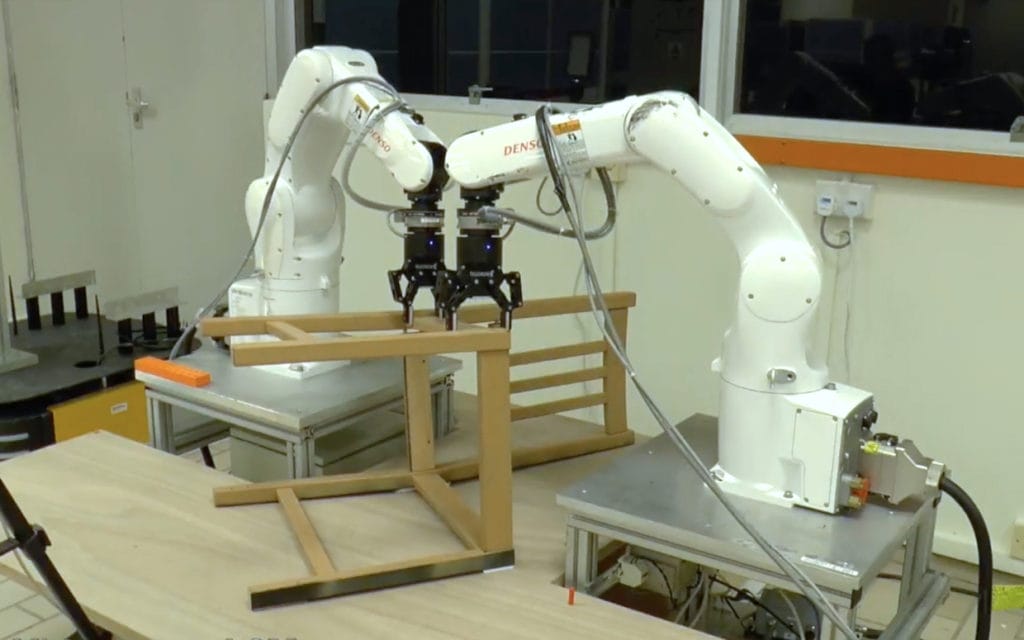
Engineer robots specialized in the automatic assembly of modular furniture like beds, cabinets, and tables that come unassembled in packages. Use robotic arms equipped with vacuum grippers to handle a variety of furniture parts from kits dexterously. Develop algorithms to parse 3D model files and instruction manuals to plan precise coordinated motions of manipulators, insertion points, and joining mechanisms to complete assembly sequenced properly. Reduce human effort in assembling complex furniture autonomously.
22. Prosthetic Leg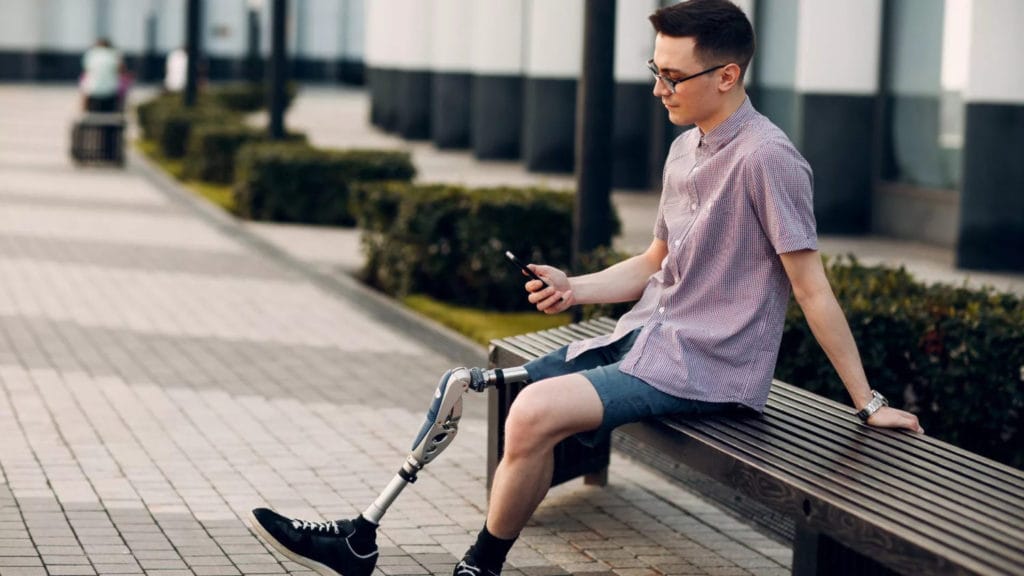
Create robotic lower limb prostheses to replace missing legs in amputees. Engineer articulating knee and ankle joints using actuators and embed force sensors for terrain feedback. Process data from sensors using machine learning models like LSTM networks to predict walk phases and terrains like stairs, ramps, etc. Dynamically control the joint motions to adapt to and stably walk over diverse real-world terrains.
Also, read – Best AI tools for startups
23. Sports Filming Drone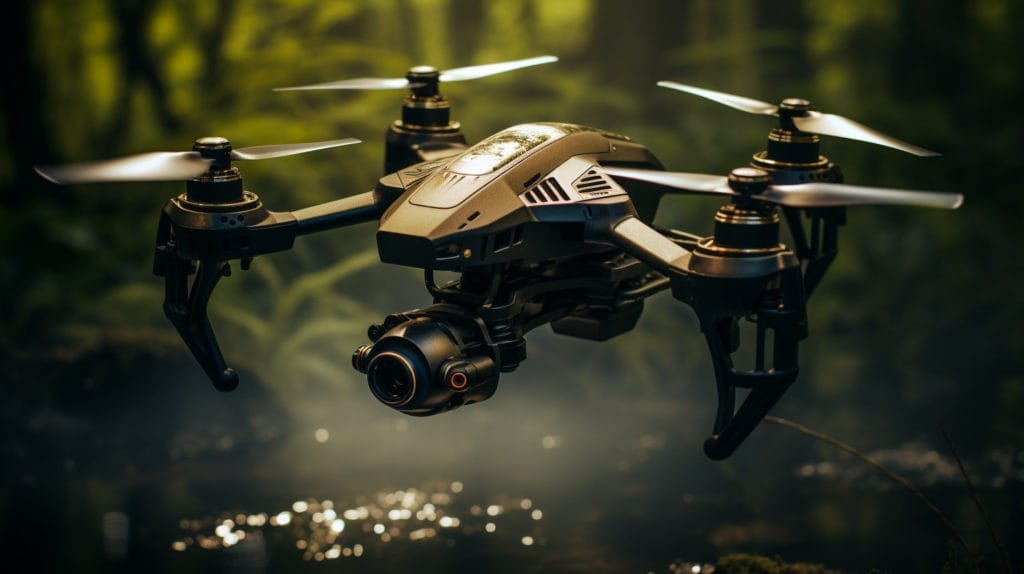
Build a self-flying drone capable of autonomously tracking and filming outdoor sports events to capture professional-grade live footage. Implement computer vision algorithms to detect players and balls using cameras. Predict motion trajectories using Kalman filters and plan dynamically updated optimal vantage points for cinematic filming. Automates challenging drone filming shots.
24. Agribots Network
Develop a networked team of aerial and ground robots capable of automating a wide range of agricultural tasks efficiently via swarm coordination. Duties could involve targeted spraying, remote field scanning using UAVs, selective harvesting by ground bots, autonomous navigation, and more. Enable communication between robots using mesh networks and distribute subtasks optimally within the swarm using algorithms like ant colony optimization.
25. Self-Driving Wheelchair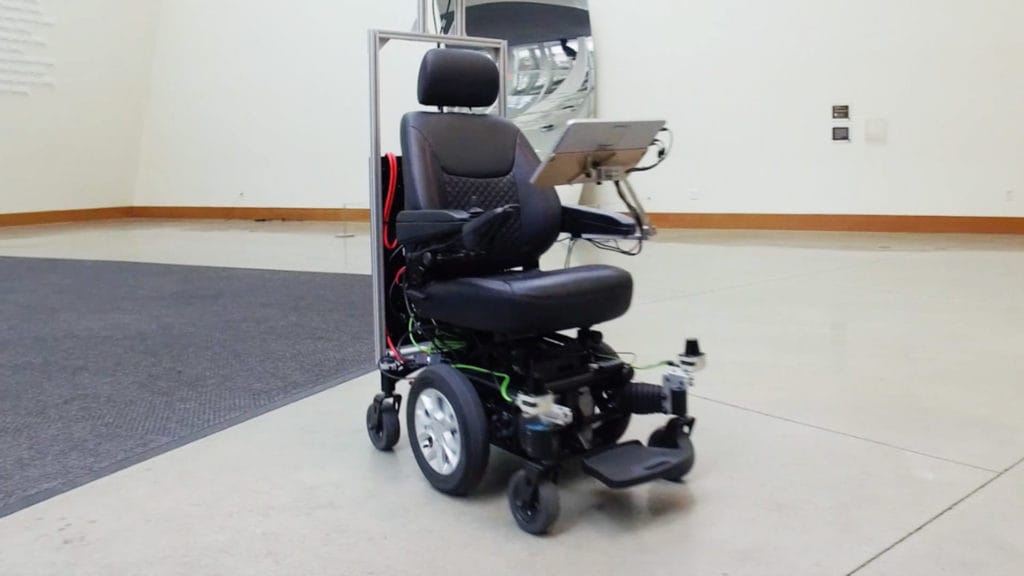
Retrofit motorized wheelchairs with sensors like LIDAR and stereo cameras and implement localization, mapping, and obstacle avoidance capabilities for autonomous navigation assistance to people with disabilities. Use SLAM techniques like occupancy grid mapping to build 2D/3D maps of indoor environments. Develop optimal trajectory planning for navigation between points without collisions. Provides independence of mobility to users.
26. Delivery Bots
Autonomous Last-Mile Delivery robots are transforming the logistics industry. These all-terrain ground robots are optimized for autonomously transporting and delivering packages over the final few miles of their journey. They utilize maps, computer vision, and machine learning algorithms to navigate sidewalks, crosswalks, and other urban environments, ensuring efficient and reliable deliveries.
Also, read – Best Cleanup Picture Tools – Get your perfectly polished photos ready NOW!
27. Smart Inspection Drone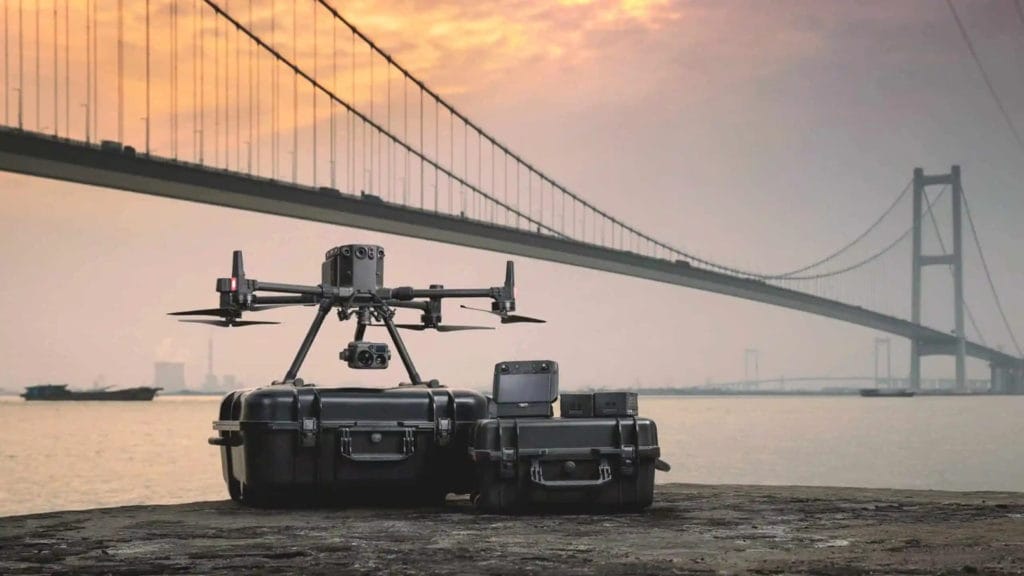
Smart Inspection Drones offer a groundbreaking solution for structural assessments. These drones can autonomously inspect structures like cell towers and bridges for signs of damage. They use object detection and crack identification algorithms on captured images, providing a safe and efficient means of conducting inspections.
28. Robot-Assisted Surgery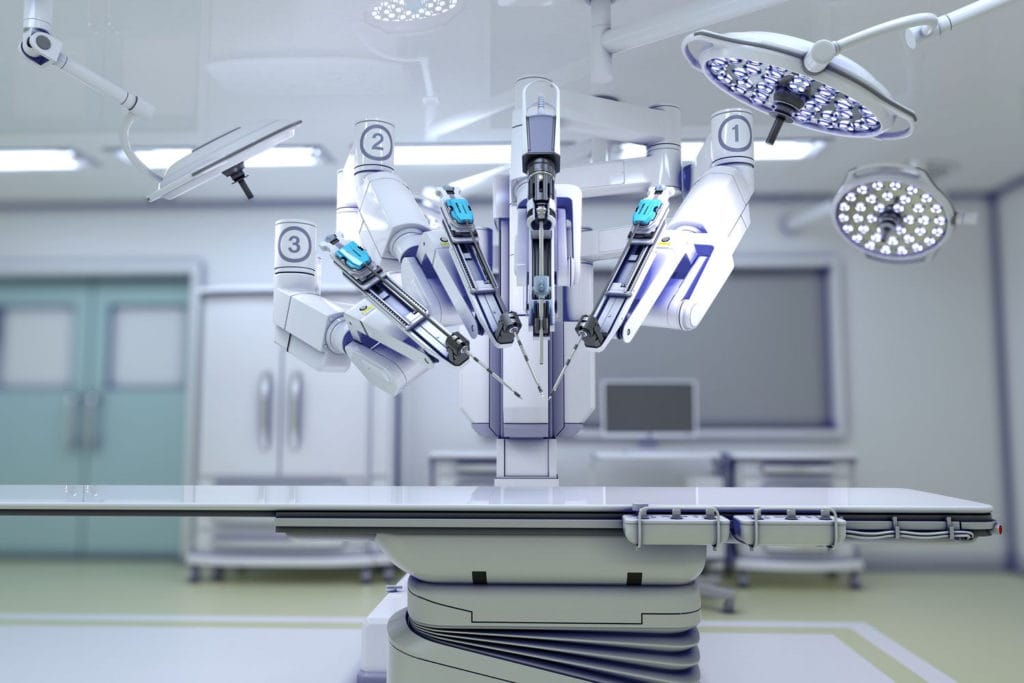
Robot-assisted surgery is a medical advancement that combines robotics and AI to enhance surgical precision and outcomes. These surgical robots can autonomously manipulate instruments, assisting surgeons during procedures. Miniaturized robotic arms, equipped with cameras and sensors, offer unparalleled stability and control. Machine learning and computer vision technologies further refine their precision.
29. Fruit Ripeness Checking
Fruit Ripeness Checking robots utilize multispectral imaging to assess the ripeness, sweetness, acidity, and quality of fruits non-destructively. These robots employ predictive analytics algorithms and computer vision to estimate shelf-life based on fruit maturity. This technology aids in minimizing food wastage and ensuring consumers receive high-quality produce.
Also, read – 15 Best AI Movies You Must Watch
30. Marine Debris Cleaning
Marine Debris Cleaning robots are engineered to tackle plastic pollution in water bodies. These autonomous boats navigate waterways equipped with computer vision systems to detect and identify debris. With the aid of robotic arms, they safely recover trash, contributing to cleaner and healthier marine ecosystems.
31. AI-Powered LEGO Bot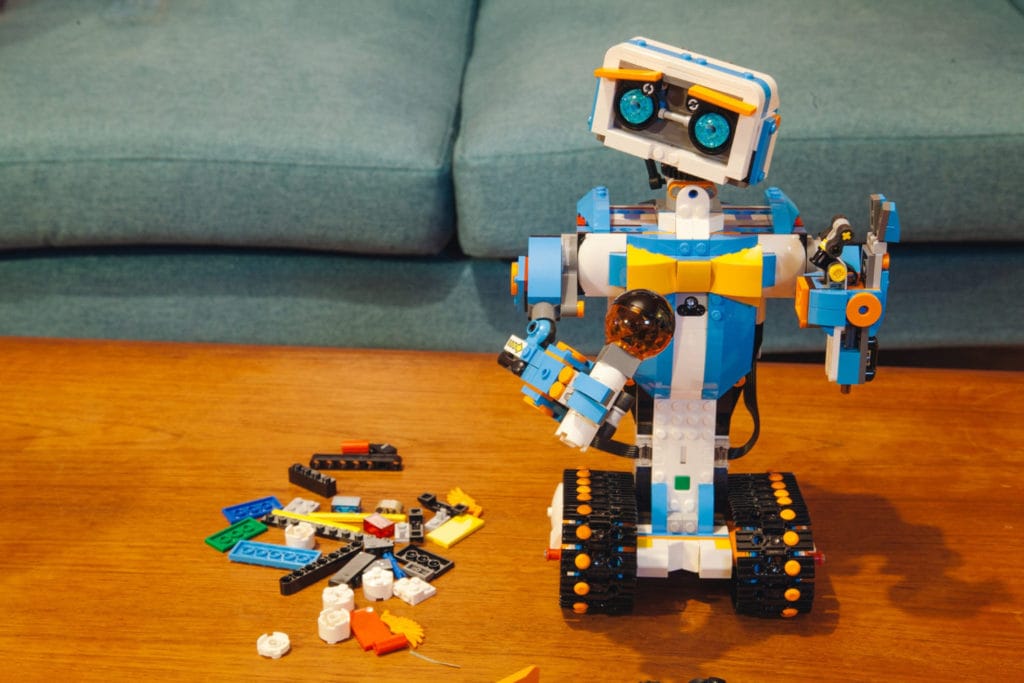
Ai-powered LEGO Bots offer a fun and educational approach to teaching programming and AI concepts. These creative LEGO robots are controllable through apps and voice commands, utilizing embedded AI technologies like Raspberry Pi. They serve as engaging tools for young learners to explore the world of robotics and artificial intelligence.
32. Precision Crop Weeding
Precision Crop Weeding robots are designed to enhance farming efficiency by selectively removing invasive plants. These robots employ computer vision, manipulators, and SLAM (Simultaneous Localization and Mapping) techniques to identify and eradicate weeds without the need for pesticides, contributing to sustainable agriculture.
Also, read – 7 Best FREE AI Chatbots That Will Blow Your Mind
33. Autonomous Hazmat Suit
Autonomous Hazmat Suits are equipped with advanced robotic technologies to protect workers in hazardous environments. Embedded sensors detect toxins and provide real-time data, ensuring the safety of the wearer. These suits also incorporate object avoidance algorithms to navigate complex environments, providing essential assistance.
34. AI-Powered Robotic Toys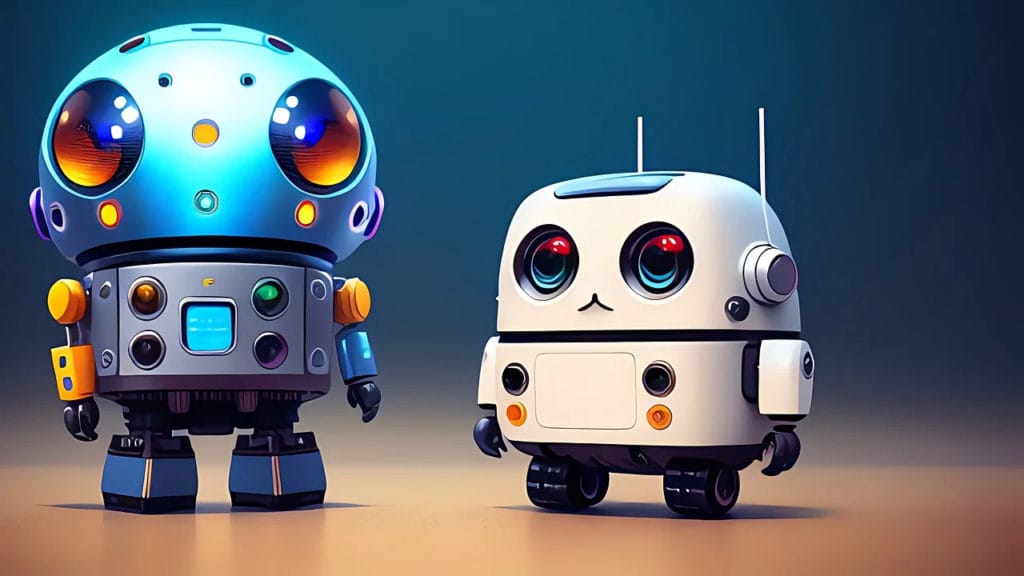
AI-Powered Robotic Toys are transforming the world of children’s play. These robotic toys, which include dolls, cars, and pets, are embedded with technologies such as voice interaction, computer vision, and machine learning algorithms. They exhibit intelligent behavior, responsive interactions, and engagement with young users, providing an entertaining and educational experience that fosters creativity and curiosity.
35. Aquatic Exploration Robot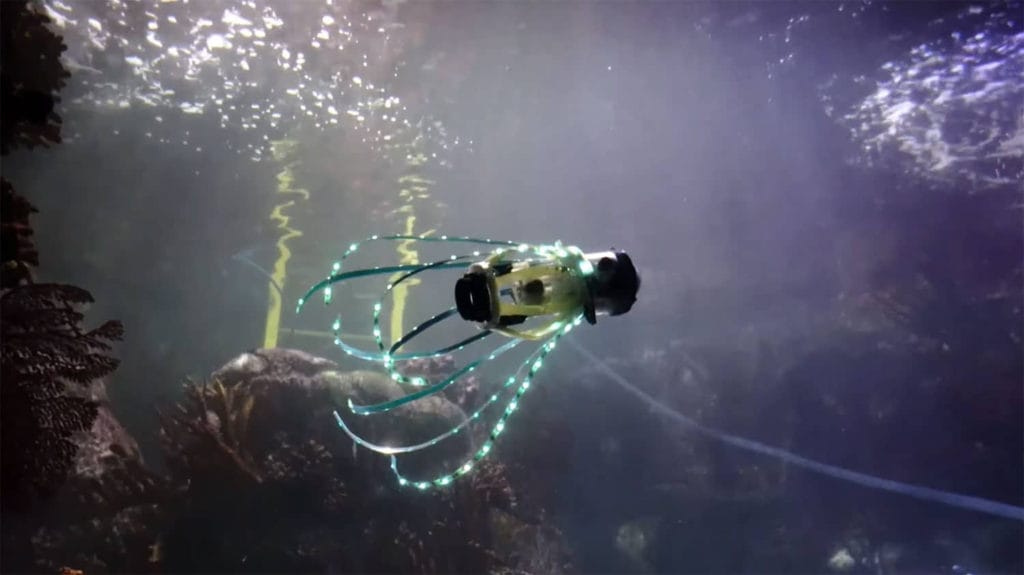
Build an intelligent autonomous underwater vehicle (AUV) for deep-sea surveying and mapping applications. Engineer propulsion mechanisms like propellers or vortex ring thrusters for efficient cruising. Equip with sonars and improved computer vision algorithms to map and avoid obstacles. Incorporate robotic manipulator arms to facilitate sample collection and seabed interactions. Integrate SLAM techniques to navigate and localize underwater.
36. Spacecraft Mechanic
Develop an autonomous robotic system capable of self-repairs and maintenance during deep space missions where human intervention is impractical. Engineer fault detection mechanisms by analyzing telemetry data from spacecraft sensors using outlier detection and other machine learning algorithms to identify degradations and predict failures. Incorporate robotic arms specialized with customized manipulators and end-effectors for repair tasks like wire cutting, connector gripping, fastener driving, etc.
Also, read – Top 5 Upcoming NFT Projects
ConclusionThe vast range of AI robotics projects highlighted here demonstrates the tremendous potential of blending artificial intelligence with robotic systems. From developing ingenious prosthetics to creating autonomous transportation, these projects tackle real-world problems and push the boundaries of what is possible. For aspiring engineers, recreating or expanding on these innovations represents an exciting gateway to honing one’s skills. The interdisciplinary nature of robotics and AI teaches important lessons in mechatronics, programming, machine learning, and working collaboratively. The future will undoubtedly see AI robotics transforming lives and environments in progressive ways.
Frequently Asked Questions What are some good beginner AI robotics projects for students?Beginner-friendly projects include building simple robots like line-following bots, robotic arms, or remote control cars. These teach basic electronics and mechanics skills.
What types of sensors are used in robotics projects?Common sensors are cameras, LIDAR, ultrasonic, infrared, pressure sensors, encoders, and more. Sensors provide robots with environmental feedback.
What prototyping tools are useful for building robotics projects?Useful, affordable tools include 3D printers, laser cutters, and CNC mills for custom fabrication of robot parts.
What AI robotics projects can help automate farming and agriculture?Precision spraying, quality inspection, fruit picking, weed removal, hive inspection, and livestock monitoring robots can assist farming.
What AI robotics projects can provide assistance in healthcare?Robotic surgery assistants, smart prosthetics, exoskeletons, disinfection robots, and patient care robots apply AI to improve medical care.
What role does computer vision play in AI robotics?Enables environmental perception and recognition capabilities for navigation, mapping, object detection, and more.
What workplace automation tasks can AI robotics help with?Pick and place operations, transporting materials, automated inspections, inventory management, agricultural tasks, cleaning, and more.
What AI techniques, like machine learning can be applied in robotics?Classification, reinforcement learning, computer vision, NLP, predictive modeling, swarm intelligence, and more.
- Home
- About Us
- Write For Us / Submit Content
- Advertising And Affiliates
- Feeds And Syndication
- Contact Us
- Login
- Privacy
All Rights Reserved. Copyright , Central Coast Communications, Inc.